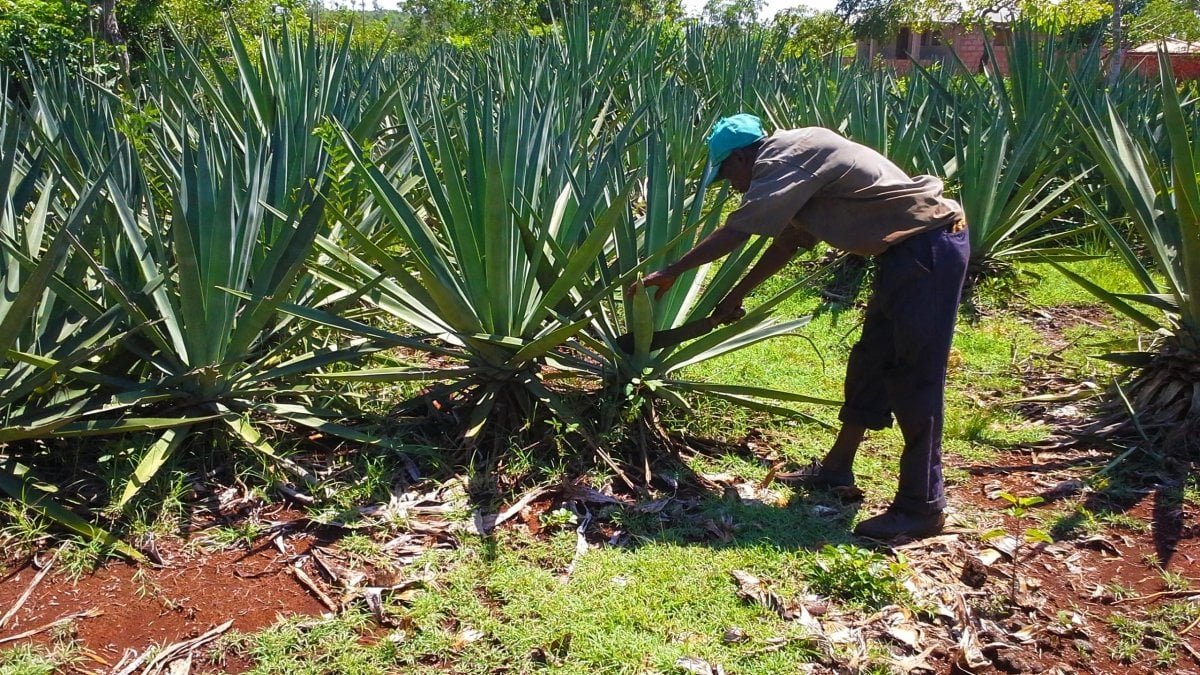A research team at Stanford University has found the absorption capacity of a sisal-based material to be higher than those in commercial menstrual pads.
About Sisal Plant:
- It is a xerophytic, monocarp, semi-perennial leaf fibre producing plant.
- The leaves are thick, fleshy and often covered with a waxy layer, typical characteristics of xerophytic plants.
- Its leaves grow up to 2 m long. The lifespan of a sisal plant is about 7-10 years, during which it produces 200-250 usable leaves.
- Each leaf has about a thousand fibres that can be used to make ropes, paper, and cloth.
- It could be used to make a highly absorbed material as well.
- Climatic condition:
- It is well adapted to arid environments as the species is xerophytic in nature.
- Temperature and Rain: It can withstand a maximum temperature 40-45°C and grows well with evenly distributed rainfall of 60-125 cm.
- Soil: It thrives best on dry, permeable, sandy-loam soils with a good amount of liming materials (Ca and Mg) but can also grow on various other types of soils.
- In India it is grown in light calcareous and gravelly soils with good drainage
- It is well adapted mainly in Odisha, Jharkhand, Maharashtra, part of Bihar, western part of West Bengal and many southern states.
- It is mainly propagated by vegetative means such as ‘bulbils’ and ‘suckers’.




